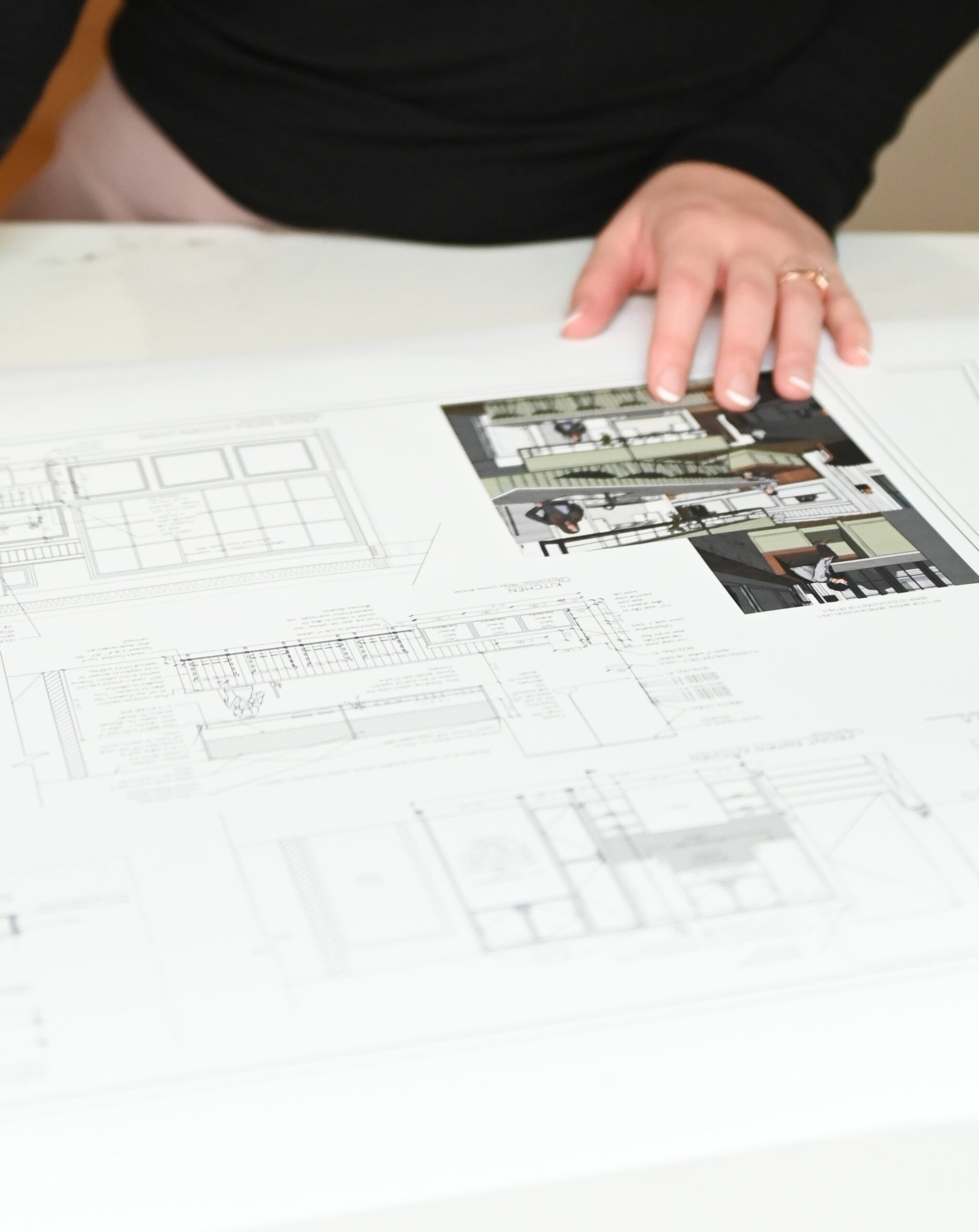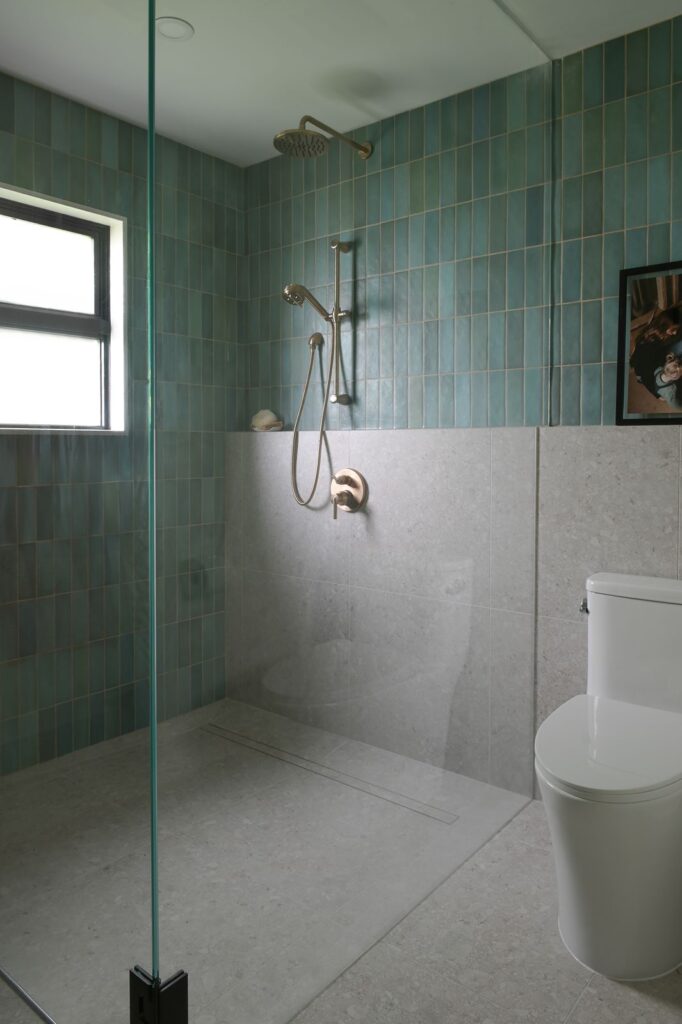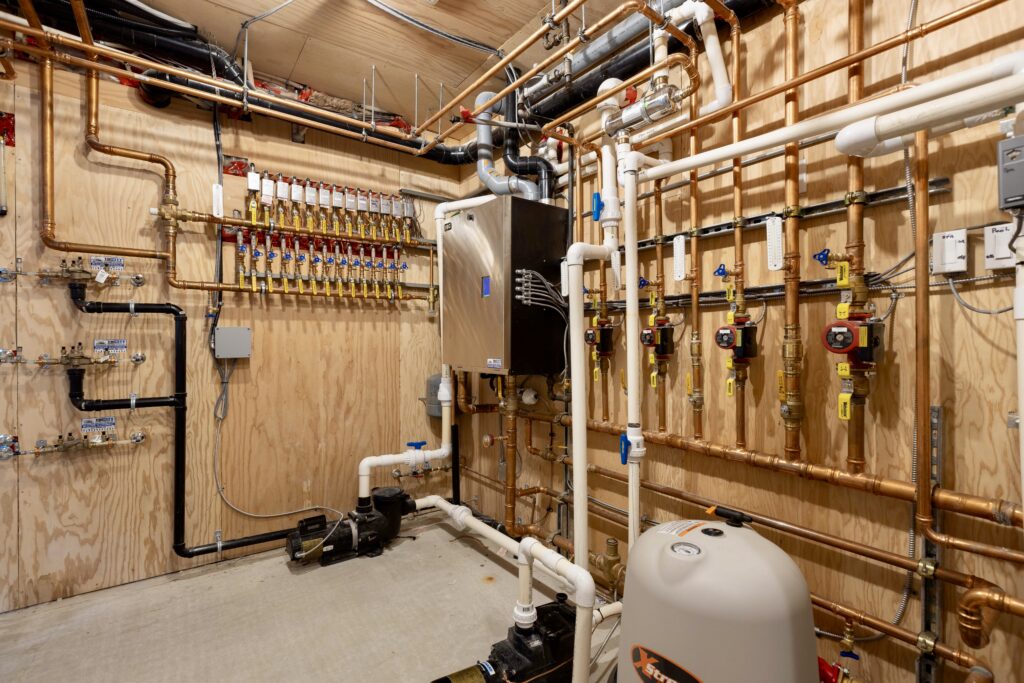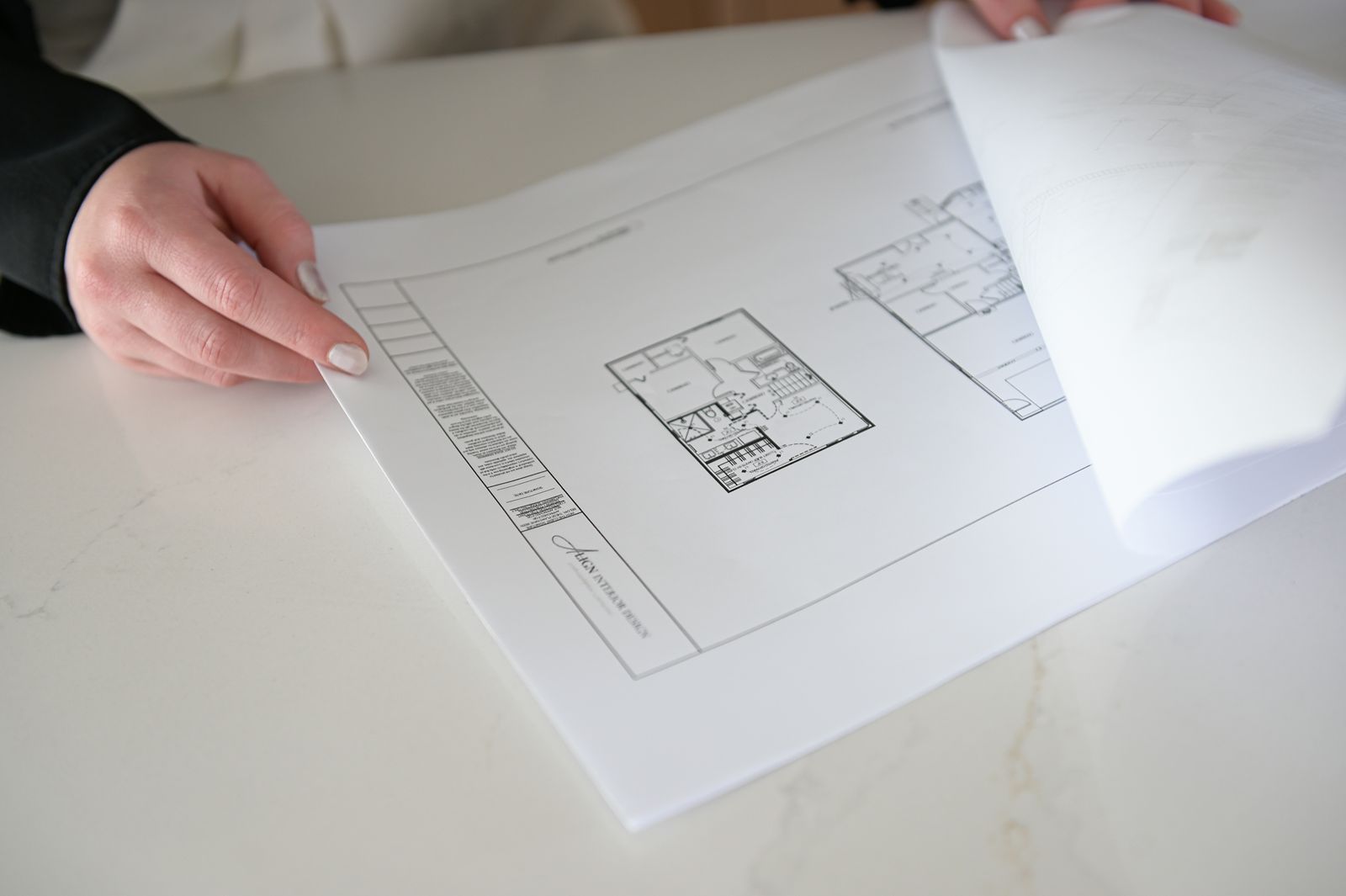I know you’ve heard the stories—renovation projects running over budget, unexpected costs popping up left and right. You’re probably reading this because you don’t have a contractor referral and are searching the internet to find out how to avoid costly mistakes. Well, don’t worry, you’re in the right place! Today, I’m walking you through the key stages where you need to have budget conversations with your build team to ensure you have up-to-date information and realistic numbers, along with exactly what questions to ask.

If you’ve read any of my past blog posts, you know that the biggest way to avoid budget blowouts is by properly planning in advance. (P.S. If you are in the interview stage, download our free Renovation Prep Checklist HERE to make sure you are properly prepared to start your renovation journey.)
Stage 1: Interviewing for Your Renovation
When you’re just starting out and interviewing contractors, it’s important to ask the right questions to set the stage for a successful project. Here are some key questions to consider:

I am looking to _____ . Do you specialize in renovation projects of my scope and size?
Ensure your contractor has experience with projects similar to yours. For instance, if you’re planning to renovate your basement and want it to be a legal suite that you can rent out, knowing they’ve handled similar projects can help you feel more comfortable. Even if their quote is higher than another contractor’s, their experience might be giving a more realistic estimate.
How does the renovation process work? How would you typically walk me through from the initial conversation to the completed renovation?
Each contractor will have slightly different ways to communicate, software they use, and ways they keep you updated during your renovation. Getting a feel for how they typically work will help you decide if they are a good fit for how you like to communicate.
Do you have any local architects, builders, or designers that you recommend I reach out to?
Working with a team that has collaborated before can lead to smoother communication. If your contractor recommends an architect or designer they’ve worked with often, the collaboration between familiar companies can make everything run like clockwork. This goes for architects or designers referring builders too! We all are more than happy to suggest our preferred companies.
Do you have the capacity and availability to take on a renovation project of my scope and start within (desired timeframe)?
Knowing their availability upfront can help you plan better. Many contractors are booked months in advance, so asking about their schedule early can save you from potential delays or disappointment. Additionally, many contractors require that you have a completed design package before they will hold a place for you in their schedule.
What is the approximate timeline that I should expect for a project of my size?
Getting a rough timeline helps you prepare for the project’s duration. Combining timelines given by different professionals can help you understand how long your renovation will take from start to finish.
What is your billing structure? Cost Plus and Fixed Fee are two common ways contractors/build teams invoice for their services.
Clarifying the billing structure helps avoid financial surprises. It’s important to ask the questions and decide if their billing structure works for you, there are pros and cons to each billing type.
Is there anything you recommend I prepare in advance to help make this a smooth experience for us all?
This question positions you to be seen as an ideal client. If you show initiative and a willingness to prioritize and give the contractor what they need, they will likely want to prioritize your project in the same way.
At the end of the day, referrals will always be the best way to find a local contractor. However, if you want to learn more about who to hire first when planning your renovation, check out this blog post: Navigating Your Home Project: Who Should I Hire First—Designer, Builder, or Architect?.
Stage 2: Before Submitting for Permit
After you have hired your contractor and as you move forward with your project and prepare to submit for a building permit, it’s important to have more detailed discussions with your contractor about the budget and timeline. Here are some key questions to ask at this stage:

Could you please provide an updated estimate range based on the current drawings and discussions?
At this stage, most contractors will not give you a full line item quote. However, those who do make it easier for us (designers) to guide you through the process while respecting your budget. Additionally, you can clearly identify what is not included in their initial budget ranges, allowing you to account for those costs. Contractors typically do not include soft costs (permit costs, design or consultant fees), appliances, window coverings, or any fixtures that are not attached to the floors, walls, or ceiling in their initial budget range.
Based on your current schedule and our scope of work, could you please give us an approximate timing range?
They will likely say, “Your scope typically takes around xx to xx months after we receive a permit.” However, they will not provide a solid timeline at this meeting. We always recommend preparing for at least 2-3 weeks longer when they do provide the timeline. This is not to suggest inaccuracy in timing quotes; there are often unexpected issues that arise during construction.
Can you please request a quote for the mechanical upgrades in our project so we can review the specifications and ask questions?
Many contractors wait until the end of the design phase to get all quotes, but we encourage you to start discussing the HVAC upgrades (if applicable) with the contractor as soon as possible. This includes options for air conditioning if you are adding it to your home. Additionally, consider furnace or hot water upgrades, central vacuum addition or updates, etc. There are typically different options available and each option can have significant impact to your overall budget so we always recommend getting a grasp on your HVAC upgrade options early.
Based on our current plans, after our permit submission process, do you anticipate my project requiring any unexpected upgrades?
In some municipalities, if your renovation exceeds a certain dollar amount (or for most new custom homes), you will require a sprinkler system to be installed. Other items such as drainage upgrades, asbestos removal, plumbing pipe or electrical wiring upgrades, and the suggestion to add backup generators due to remote or high power outage locations are all important considerations that can significantly impact your budget. It is important to understand these items early on.
This is the stage where you will have a better understanding of your material finish expectations, any structural changes, etc. Essentially, if your budget is going to increase, you want it to happen at this stage before your entire design package is complete. Changes or scope reductions at this stage are much easier than running out of money during construction and being forced to make hard, stressful decisions in the moment.
Stage 3: When Your Design is Complete and You Have Your Actual Construction Estimate
Now that your design is complete and you have your actual estimate from the contractor, it’s time to finalize the details and ask some strategic questions before construction begins. Here are some key questions to ask at this stage:
Could you please price xx and xx items separately?
If the quote comes in higher than you’re willing to spend, knowing the cost of specific items helps you decide where to cut costs. For example, you might find want to quote that perfect design element to see if you can make it work financially, however have a more cost effective back up option available. Knowing the cost difference between both options, can help you make easier decisions when you are value-engineering the work that you are actually going forward with. – Trust us it’s way easier (and less stressful) to cut back elements pre-construction rather than during construction.
Based on your current schedule and our scope of work, could you please give us an approximate timing range?
They will likely say, “Your scope typically takes around xx to xx months after we receive a permit.” While they won’t give a solid timeline at this meeting, we always recommend mentally preparing for at least 2-3 weeks longer, as there are often unexpected issues that arise during construction. (This is not suggesting inaccuracy in timing estimates, there simply is always something that comes up during construction.)
Approximately how long does the quoting process take?
Knowing the timeframe for receiving quotes after the design is complete, helps in planning your next steps. Depending on project complexity, this can take anywhere from 3-7 weeks.
Do we need to move out for this renovation, or is there a way to phase it so we can live in the house?
If phasing is possible and you want to live in the home during the renovation, ask about the approximate cost increase to split the project into phases. Typically, there are return trip charges and small restart fees when you bring trades back to the home in phases. If feasible, we always encourage finding a rental space off-site. In most cases, living during a renovation is not for busy families or professionals working from home. Ultimately, it comes down to what works best for you and your family. However, in our experience, the clients that have the best overall experience live off-site, but visit often.
Bonus Questions to Consider
In addition to the key questions for each stage, here are some bonus questions that might be applicable to your project. These can help you address specific concerns and ensure every aspect of your renovation is considered:

We currently have squeaky floors in xx areas. Can you please provide a recommendation of how we can remediate this during our construction phase?
No one likes squeaky floors! Tackling this issue during your renovation can save you time and hassle down the road.
We have a problem with noise transfer between floors. Since we are opening up the ceiling below, can we talk about our insulating options to dampen the noise between floors?
If noise is a concern, now’s the time to address it. You can also ask about extra insulation for plumbing walls and floors. This little step can make a big difference in your home’s comfort and privacy.
Will my project require an electrical panel upgrade?
If you’ve got a 100 amp service, chances are you’ll need to upgrade to 200 amps. And if you’re thinking about future needs like solar power or car chargers, this is a great time to plan for those as well.
We experience a lot of power outages where we live. Please let me know what my backup generator options are and if you have any recommendations?
Power outages can be a real pain. It’s usually more cost-effective to add a generator during your renovation. Discuss options that automatically turn on during outages versus manual ones, and decide which areas of your home should be connected to the generator.
Please provide a list of the mechanical specifications that are included in my renovation?
Make sure you know what’s included, like replacing the furnace, upgrading to a tankless hot water unit, or adding a heat pump for A/C. It’s all in the details!

Are exterior hose bibs, exterior gas line extensions (to new BBQs), exterior outlet additions, etc., included in the scope?
Don’t forget the outside! If these weren’t discussed during the design phase, bring them up now to avoid any surprises later.
After our permit submission process, do you anticipate my project requiring any unexpected upgrades?
Renovations can come with hidden costs. In some places, big renovations or new homes might need sprinkler systems, drainage upgrades, asbestos removal, or electrical wiring upgrades. Knowing this upfront helps you budget better.
Do you have a moving team that you recommend?
If you need to pack up and move items out of the renovation area, having a recommended moving team can make things smoother and less stressful.
These additional questions can help you address specific concerns and ensure every aspect of your renovation is considered. By planning and thoroughly documenting everything before construction begins, you can minimize stress and ensure the success of your project.
Ok phew, you made it to the end!! I know it seems like a lot, so just focus on the questions based on the stage you are at and come back to this post as you progress… And if you end up being a client of mine, I’ll walk you through every step.
Check out our free Renovation Budget Checklist to help you plan your next project!
Learn more about renovation timelines and tips in our previous post here.
